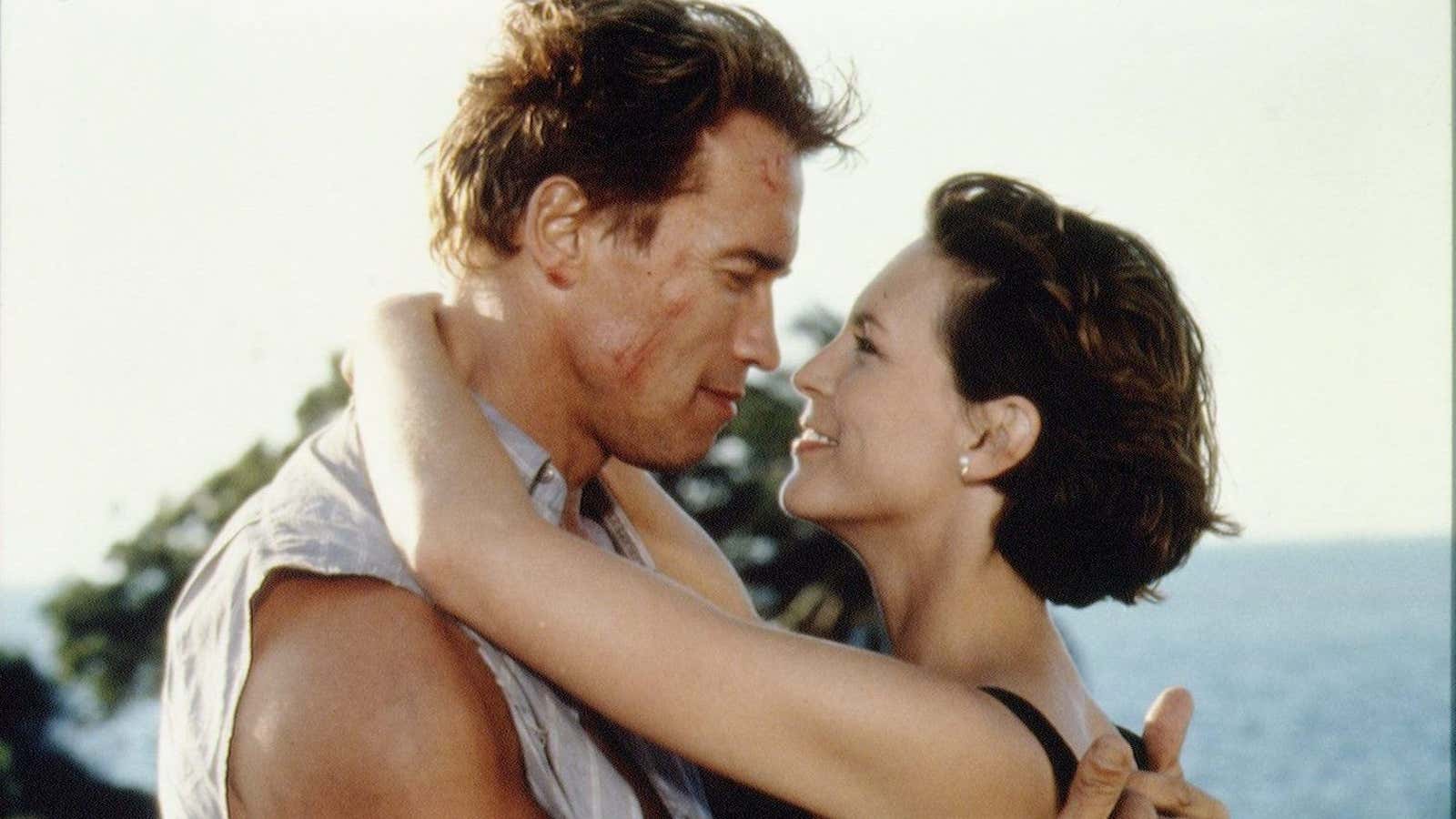Screenwriter John August recently wanted to watch Garry Marshall’s 1984 movie The Flamingo Kid. The coming-of-age dramedy starring Matt Dillon wasn’t exactly a cornerstone of American cinema, but August recalled, from catching the film on cable TV once, that it deftly captured the 1980s US east coast beach culture he was researching for new project.
He checked streaming and online video stores like Netflix and iTunes for The Flamingo Kid, but couldn’t watch it online—at least not legally. It was a film from the video-store era, when movies thrived on home-entertainment dollars, that never made it to the internet. “It was weird to encounter a movie that I knew must exist on DVD, yet it wasn’t available digitally for download,” August, writer of the movie Big Fish and the novel Arlo Finch, told Quartz. ”That sent me on a chase to figure out how many of these movies were not available.”
Others can probably recall a moment where they were unable to find a movie or TV show they wanted to watch online, and abandoned interest or resorted to less-than-legal means of viewing. August asked movie lovers via his blog to crowdsource a list of other films that aren’t on the internet. Industry-tracker Stephen Follows took up the call and identified 335 movies going back to 1970 that can’t be streamed, rented, or purchased digitally, including cult classics like James Cameron’s True Lies and Ron Howard’s Willow.
While there are cultural arguments for preserving artwork and making older films available on the internet, there’s also a compelling business case. The studios and creators behind these films could be making more money if the people who wanted to watch these movies could legally do so. Distributors get paid and guild writers, actors, and directors get residual checks when their films are downloaded or rented digitally on a platform like iTunes, and when they’re licensed for streaming or TV, or sold as physical copies like DVDs, August said.
August bought the DVD of The Flamingo Kid on Amazon and watched it a few days later. But he knows not everyone would go that far to watch a movie legally. Yet it’s tough to fault someone for pirating a film when there isn’t another easy way to watch it.
August is talking to the Academy of Motion Picture Arts and Sciences, of which he is a member, to see if it will take on the cause. He’s also hoping filmmakers, like Cameron and Howard who may not be know their early movies aren’t easily accessible anymore, will champion this issue.
“I’m honestly not the person who is going to fix this,” August said. “My gut instinct is that some of these filmmakers will recognize that, ‘wait, it’s crazy that a person can’t watch my movie,’ and they’ll be the ones to apply the pressure.”
Some films aren’t available to watch online because the studio that released it doesn’t have the rights to distribute it digitally. There are many reasons why this might be the case: For example, a song in a film that wasn’t licensed for digital distribution could get in the way. In other cases, it may be unclear who holds the online rights, like when a studio collapsed and no one bought its library. Lawyers can usually sort that out, said August, who once worked in “clearances” at Universal, where it was his job to get permission for things like signs and music in the backgrounds of scenes.
“They already have departments that are doing that,” August said. “It’d just be adding a few new pieces.” The process of putting movies online is pretty easy and inexpensive otherwise, especially for movies from the 1980s or later that that were already converted from film to home-video formats like VHS or DVD.
Studios simply need to know there’s interest. Kate Hagen at The Black List, a community for screenwriters, wrote in June about being unable to watch 1988’s Fresh Horses. As a result, Sony, which had some of the rights to the film, struck a new 35mm print and it was screened at the Los Angeles County Museum of Art. (It is still not available to legally stream, rent, or download online in the US, according to the movie and TV tracking site JustWatch.)
“A lot of it is just letting the studios know that people want to see these films,” Hagen told Quartz. “For most people, this isn’t even on their radar until they go to look for one specific movie and suddenly cannot find it.”
Update (6pm EST): Disney told Quartz it does not currently plan to release The Flamingo Kid in the near future.
